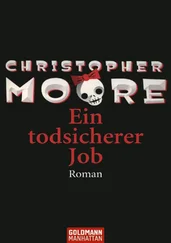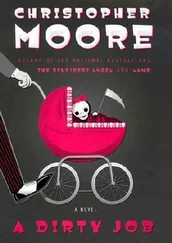Brian laughed.
Rivera laughed and said, “You’ve done this before.”
“Inspector, I’m gay, I’m fifty, and I’ve lived in the Castro for thirty-two years. I buried half a generation of friends and lovers before the cocktail. Yes, I’ve done this before. Not like this, though.”
“You can call me Alphonse,” Rivera said.
“I’ll call you ‘Inspector.’ Nick liked that. He was proud of being an inspector, a detective, a working cop .”
“He wouldn’t even take the tests to move up,” Rivera said.
“He was where he wanted to be, and for that we can both take comfort.”
“I’m going to get them.”
“I know,” Brian said.
Rivera nodded and moved on. He walked by his partner’s open casket but could only bring himself to look at Cavuto’s tie, and smile, because someone, probably Brian, had put just the slightest smear of mustard there.
Across the room, Sophie waited with Auntie Cassie for her daddy and Audrey to get through the line, and for Auntie Jane to return from the bar. Among all the cops, the mayor, city councilmen, firemen, EMTs, nurses, prosecutors, jailors, and friends, was the occasional junkie, or hooker, or ex-gangster, most of them standing off to themselves, or trying to, not feeling as if they fit in, but feeling like they needed to be there, because as much as Nick Cavuto had been a rough, profane, bull of a cop, he had also been a kind, fair man, and in the course of his long career had touched a lot of people’s lives. Standing out from those, though, were three man-nuns from the order of the Sisters of Perpetual Indulgence, a group who did their service and performance for the community with good humor and, of course, in drag.
The three were all in Kabuki-style whiteface makeup with three different styles of habits. The one closest to Sophie wore a wimple with wings.
“Are you a nun?” Sophie asked.
“Why yes, darling, we all are,” said the sister.
“The nuns at my school are mean.”
“I’m a different kind of nun.”
“Flying?”
“No, but thanks for asking.” The sister primped his wings.
“A booty nun?”
“I don’t know what that is, honey, but I like where you’re going with it. No, we’re more like—like fairies.”
“Fairies?” She grinned in a kid-rictus and pointed to a vacant spot in her lower gum. “You bitches still owe me some money for this.”
“Oh my. We’ll see about that. Sister has to go do good deeds now, honey.” The nun led her sisters a few feet to the right, where they turned their attention to others in need of mercy.
“Who was that?” asked Cassie.
“Just a fairy.”
“Honey, we don’t use that term, it’s not nice.”
“Like Magical Negro?”
“Auntie Jane really has ruined you. Come, let’s go blame her.”
Lily finished in the reception line first and headed for Cassie and Sophie. As she passed the Sisters, one of them looked at her corset-elevated cleavage and tsked-tsked her as she passed.
“Really, doll, the devil’s pillows at a funeral?”
“Only dress I had that was clean,” Lily said. Which was not entirely true, but even she knew it was ill-advised to throw down with drag nuns at a funeral, and she felt very mature for the lie.
“Well, they’re stunning,” said a second nun. “If you got it, flaunt it, I guess—”
“God loves hussies, too,” said the third. “Bless you, child.”
The funeral was held at St. Mary’s Cathedral of San Francisco, which has the distinction of being the only church in the world designed after a washing-machine agitator. There was a wide courtyard that led out onto Geary Boulevard, the main east-west surface artery of San Francisco, and today it was filled a block wide and a half a block deep with policemen from a score of departments all over the state, in dress blues, standing in ranks, saluting their fallen brother in arms.
The cathedral was full, not just the main sanctuary, with its soaring concrete ceiling broken with strips of stained glass, but all the pews that reached back into grotto-like overhangs. The doors on all sides of the main nave were propped open and hundreds of people stood in the outer lobbies, which had highly polished floors and glass walls that looked out on the courtyards and the streets.
If the outside of St. Mary’s resembled a washing machine, the interior was a minimalist starship, with the round dais and altar at the head of the nave, and a pipe organ built into a platform that rose and cantilevered over the mourners on the side, like the control center of the great vessel.
Rivera and the other pallbearers stood to the side of the casket, along with an honor guard with rifles and a corps of eight with bagpipes and drums. He stood at ease, hands in white gloves folded in front, as first the bishop, then two priests, then the mayor, the chief of police, the district attorney, a senator, two congressmen, and the lieutenant governor spoke of Nick Cavuto’s courage, dedication, and service to the city for twenty-six years. The entire time, Rivera tried not to smile, not because he wasn’t grief-stricken or nearly shaking with a desire for revenge, not because he didn’t feel the profound space that his friend had left vacant, but because he could hear Cavuto cracking wise through the entire ceremony, calling bullshit on everything the politicians and clerics said: “You know why those guys with the bagpipes have daggers on their belts, right? So they can stab themselves in the fucking legs to take their minds off the music.”
He could hear him like his friend was standing next to him: “You know why they play bagpipes at a funeral? It’s to rush the soul to heaven because he’s the only one who can leave early. Tell me if my ears start to bleed, this is a new shirt.”
Thousands were watching, and Rivera knew that he, the fallen’s partner, dare not smile, and he knew that Cavuto would be laughing at him, razzing him, daring him to laugh.
And when they had all spoken, the great organ had played, the final prayer given, the bagpipes started to play, to signal them to move the casket, but instead the crowd parted and a solitary figure came up the aisle, female, thin, dressed head to toe in beaded lace, a veiled pillar of femininity and grace, moving as if floating above the floor. And no one moved. The pipes whined to silence. She turned, faced the mourners, and began to sing.
Without a microphone or amplifier, her voice filled the cathedral, the lobbies, the courtyards and the streets. She sang the notes of heartbreak and loss, of grief unassuaged and glory unrewarded. She sang to the heartstrings of all who could hear—tears streamed and eyes clouded until the sunlight through the stained glass looked like stars. She sang “Danny Boy” and “The Minstrel Boy,” in a Celtic dialect, because even though Cavuto had been Italian, all cops are Irish in death. She sang a dirge in an ancient language that no one recognized except that the notes resonated with that part in each of them that could feel the passing of a soul—a part they had never touched before. And when she finished, she was gone. No one saw her leave, but somehow, everyone was left with a bittersweet sadness, satisfied that they had said good-bye. Their vision was cleared of tears.
As he helped lift Cavuto’s casket, to take it out to the hearse under the salute of five thousand cops, Rivera smelled the faint odor of burning peat and at last allowed himself to smile.
They met at the Three Jewel Buddhist Center the day after the funeral: Charlie, Audrey, Minty Fresh, Lily, Rivera. Minty Fresh had called Carrie Lang, the pawnbroker, and Jean-Pierre Baptiste, the Death Merchant from the hospice. Charlie had found the Emperor and his men in the utility closet behind the pizza place in North Beach, and strangely enough, had no problem convincing the old man that he was, indeed, Charlie Asher in a different body, and saw to it that he and the men made it to the meeting. The Emperor entered carrying the map bag containing the heavy journal Rivera had given him.
Читать дальше












